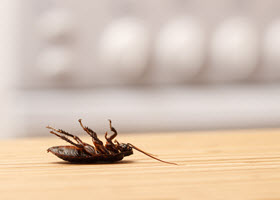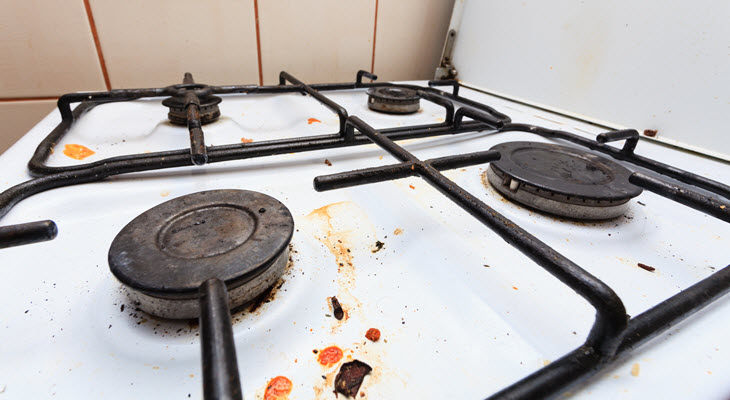
Hidden Places of Your Kitchen that Hide Health Hazards for You
by Elias Deukmajian | Health Safety
We all know what goes on in our kitchens, or at least we think we do. Many times we think we know what happens because we are the ones in the kitchen preparing the food and cooking or baking and cleaning up after. But what about the hidden health hazards that we may not be able to see or may just as easily overlook? The kitchen can be a source of chemicals that can promote cancer and other illnesses. First you have to recognize what the potential hazards are and then you have to set up a plan to prevent those hazards from reoccurring just as badly, if at all.
-
Everyone loves to buy nonstick cook and bakeware because it makes preparing dishes and cleaning up afterwards so much easier. However, there is a chemical in Teflon cookware that gives it its nonstick qualities but also is a chemical that promotes cancer. The safest cookware to use is actually stainless steel, ceramic, or well-seasoned cast iron skillets.
-
Pesticides can be another huge issue in the kitchen. Many people use pesticides inside and outside of their homes to protect against rodents and insects alike. The chemicals in pesticides can cause symptoms like nausea, muscle pain and weakness, and headaches. A way to avoid this is to invest in pesticides with natural components instead. Some pesticides can also be found in the foods you buy. This is why many people choose to buy organic foods. The foods highest in pesticides tend to be spinach, apples, strawberries, and tomatoes, so even just buying organic of these foods can help lessen the load of pesticides in your kitchen.
-
Two other issues actually coincide with one another. These would be plastics and microwaves. Often times people use plastics to store their food, and while storing it is less harmful, the chemicals in the plastic can still seep into the food stored inside. Microwaving the food while it’s in those plastic containers however can be much worse. Microwaves have been proven to emit radiation and seep chemicals into your food as well as diminishing nutrients that is in food.
-
Many people don’t care if they drink water from a bottle or from the tap, but should you? It is suggested to use a Brita filter or other pitcher with an activated carbon filter. This will get rid of the solvents, chlorine, and pesticides from the water. However, these pitcher filters don’t remove fluoride or heavy metals that may be in your water. The best way to know what sort of filter you may need, if any, is by checking different resources for what may be in your city’s water.
-
Kitchen sponges are used to keep surfaces and dishes clean and sanitary, but the opposite may in fact be happening. These sponges can actually be a host to tons of bacteria that spread from surface to surface and even to you. For example, if you clean off a cutting board used to cut uncooked chicken and then use that same sponge to wipe down the counter, some bacteria can be spread. It is suggested to put a sponge in the dishwasher, or even the microwave due to its nuking ability, in order to clean the sponge and keep it lasting longer.
-
Almost everyone has heard that mold in one’s home can be extremely dangerous. Mold spores spread quickly and will start to grow inside your home if surfaces remain wet. Mold can increase allergy and asthma symptoms, as well as cause infections. You can reduce the growth of mold in your house by keeping kitchen counters dry, repairing water leaks as soon as you know of them, and keeping your house well ventilated so as to reduce excess moisture in the air.
-
Another health hazard could be in your refrigerator. It is recommended that you clean out your fridge twice a month. This entails removing all foods and bins and just wiping it down and washing the removable parts with warm soapy water. Making sure to keep items like raw meat away from vegetables and fruits to avoid diseases like salmonella.
-
Harsh chemical cleaners can also be harmful to your health. One reason this can be dangerous is that the manufacturers of these cleaners aren’t required to state which chemicals are in their cleaners. Natural cleaners can be much healthier and less dangerous. You can also clean almost any surface using different combinations of baking soda, vinegar, and lemon juice. For instance, if you have a greasy stove top with baked on food pieces, you can sprinkle on baking soda and water to form a thick paste and wipe the surface with a clean sponge after letting it sit.




